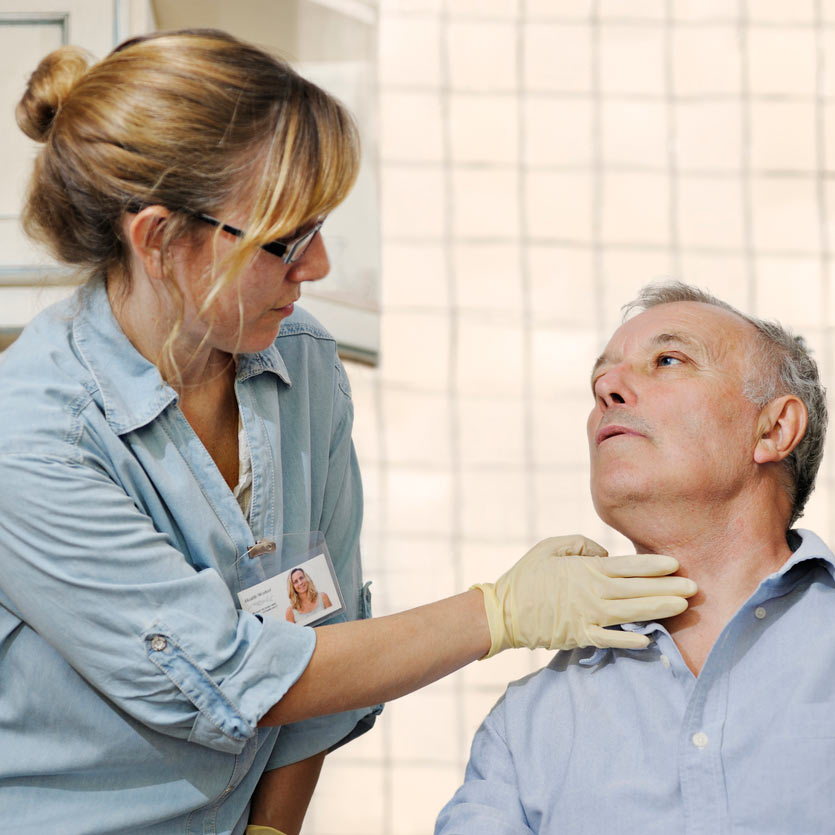7 Secondary Symptoms of Parkinson's Disease
What you think about when you think about Parkinson’s disease symptoms is likely tremor, stiff muscles, a slow or shuffling gait, and other motor issues. But there is also a whole host of what are called secondary symptoms, says Liana Rosenthal, M.D., assistant professor of neurology at the Johns Hopkins University School of Medicine. “These run the gamut from dizziness and light-headedness to physical constipation and a feeling of fullness.”
Here are some secondary symptoms you may experience and guidance on how to manage them:
Light-headedness/dizziness
Feeling dizzy upon standing due to orthostatic hypotension is a common symptom of Parkinson’s disease that’s caused by a dip in blood pressure.
How to manage: Because light-headedness can be due to Parkinson’s itself or a side effect of medication, talk to your doctor about adjusting your medications. Increase fluid and salt intake, increase exercise, and consider compression stockings.
Constipation or feeling of fullness
These symptoms are highly common in Parkinson’s disease and result from a slowdown in smooth muscle activity in your digestive system.
How to manage: Before resorting to laxatives, try drinking more fluids, upping your intake of fiber-rich foods and exercising.
Urinary issues
A common symptom of Parkinson’s disease is having a frequent or urgent need to urinate, even if your bladder is not full.
How to manage: See your doctor to rule out other causes of urinary problems, such as an infection. He or she may be able to prescribe medication. Restrict fluid intake before bed at night.
Muscle cramps
A frequent symptom of Parkinson’s, as well as a side effect of medications to treat it, is dystonia, which is painful cramping in muscles. Dystonia usually occurs in the feet, hands, neck or face.
How to manage: Ask your doctor to assess your symptoms to see if their timing relates to when medication peaks or dips in your body. He or she may suggest altering the timing or adding other treatments.
Sexual problems
Men may experience erectile dysfunction (ED), premature or delayed ejaculation, or decreased libido. Women may have decreased libido, inability to orgasm and decreased lubrication. Bradykinesia (slowed movement) and rigidity can also interfere with your sex life.
How to manage: See your doctor for help with medical issues like ED. But most important is sensitive, frequent and open communication between partners to address difficulties and find alternative ways to be intimate, if necessary.
Speech problems
It’s common for patients with Parkinson’s disease to experience hypophonia (low voice volume) and dysarthria (difficulty speaking), among other issues.
How to manage: A speech-language pathologist may be able to help you with exercises designed to increase voice volume and strengthen the muscles you use to speak. A type of therapy specifically for patients with Parkinson’s disease called Lee Silverman Voice Technique works to help them amplify and exaggerate their voices.
Swallowing difficulty (dysphagia)
You may find that chewing and swallowing are more difficult, leading to embarrassing issues with drooling or dribbling, and potentially leading to the risk of malnutrition or choking on or aspirating foods.
How to manage: See a speech-language pathologist to see if therapy can help improve swallowing. You may also consider changing the type or texture of the foods you eat to help avoid choking and other issues.




